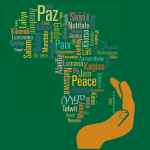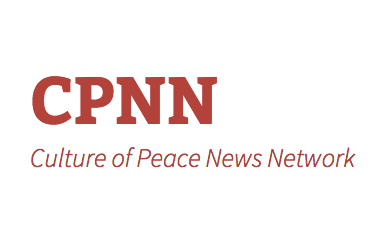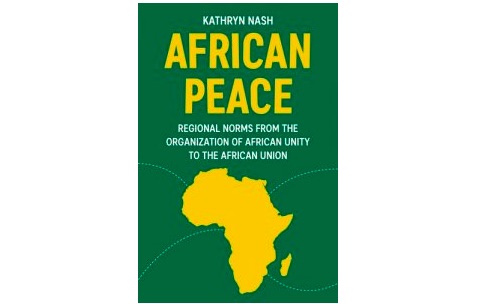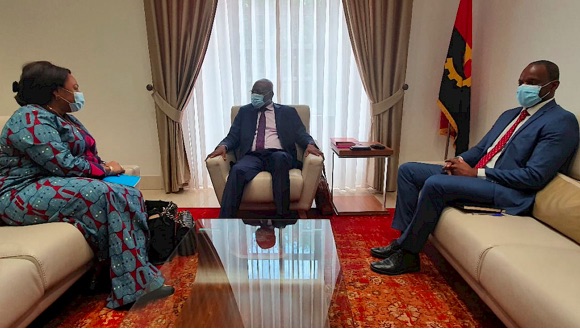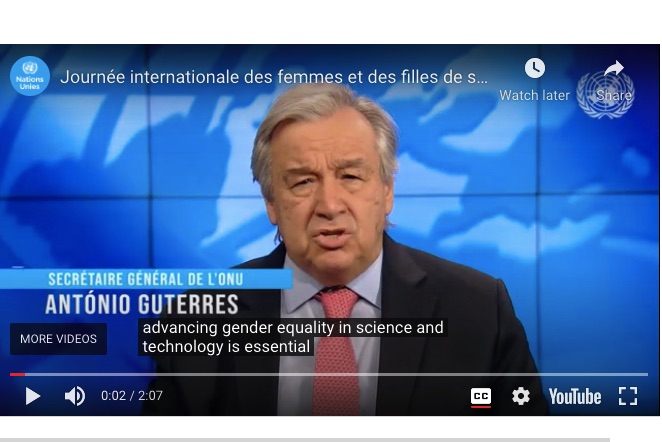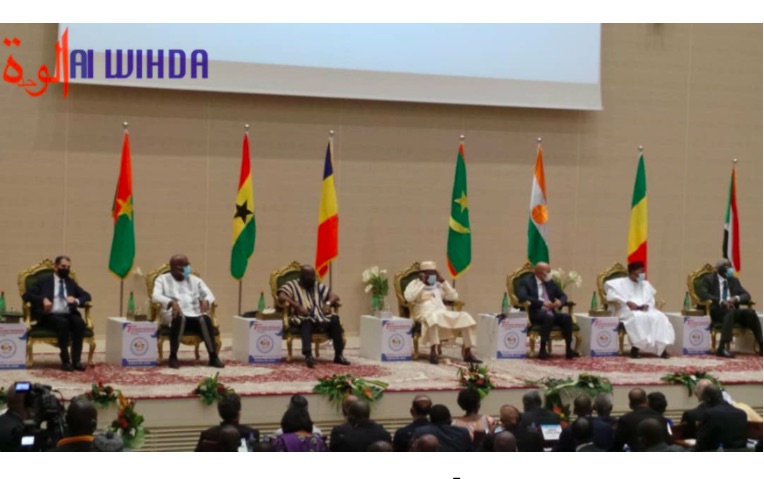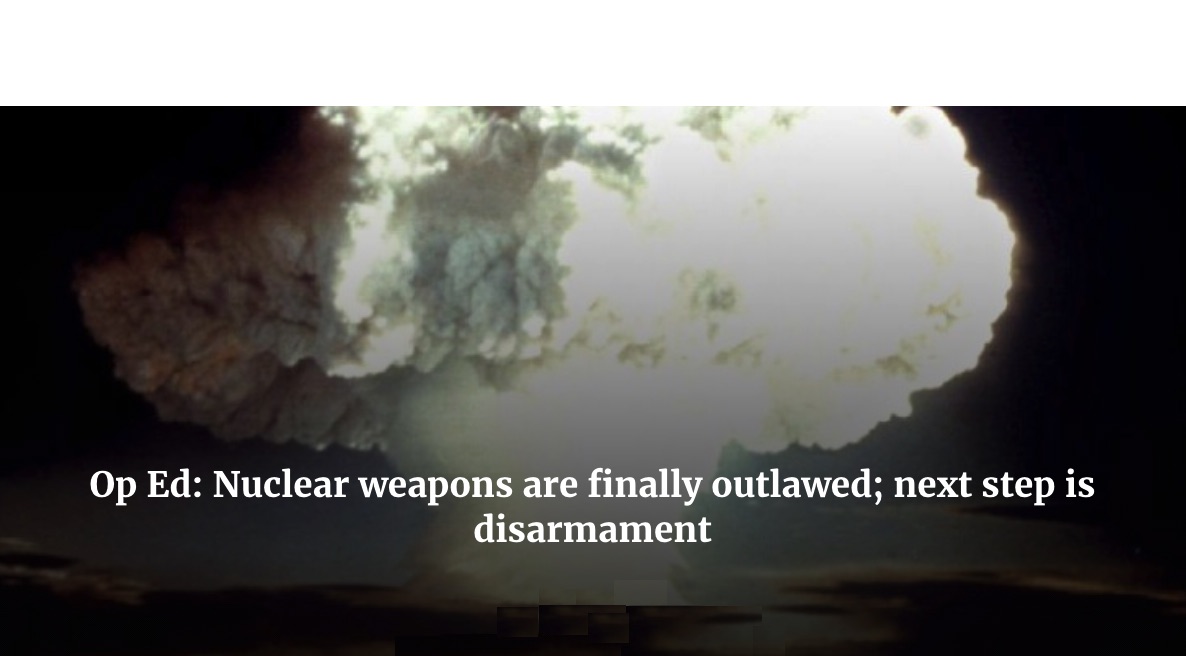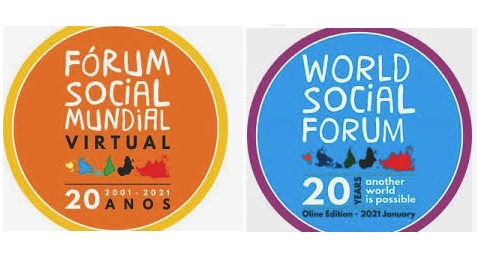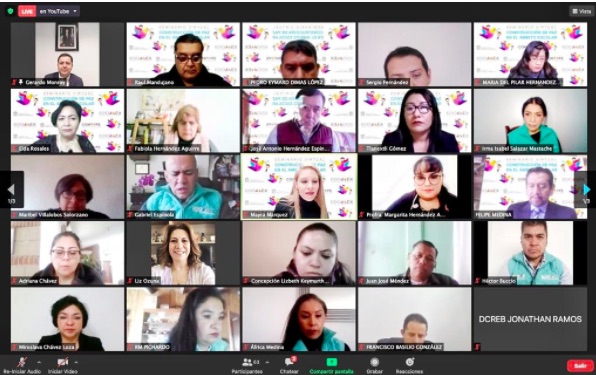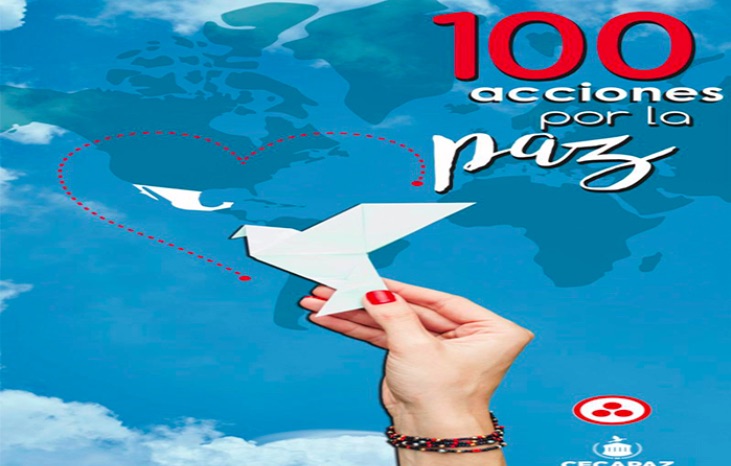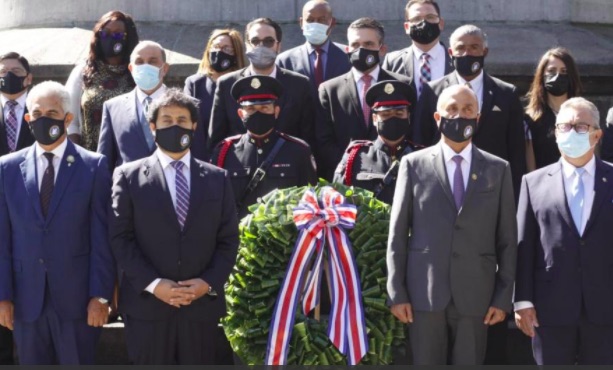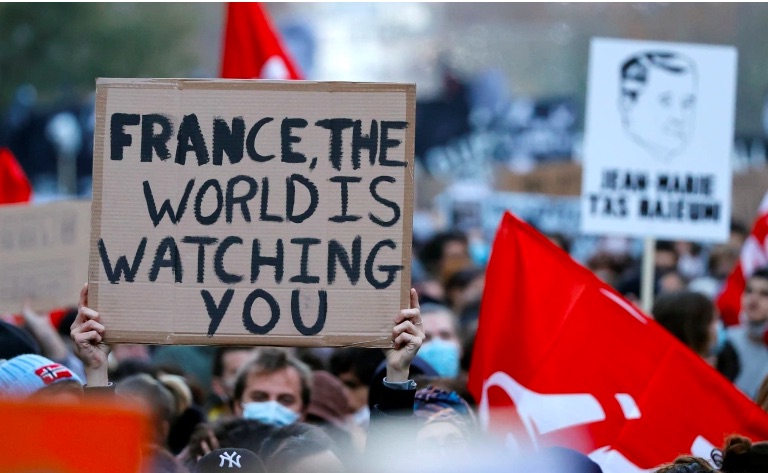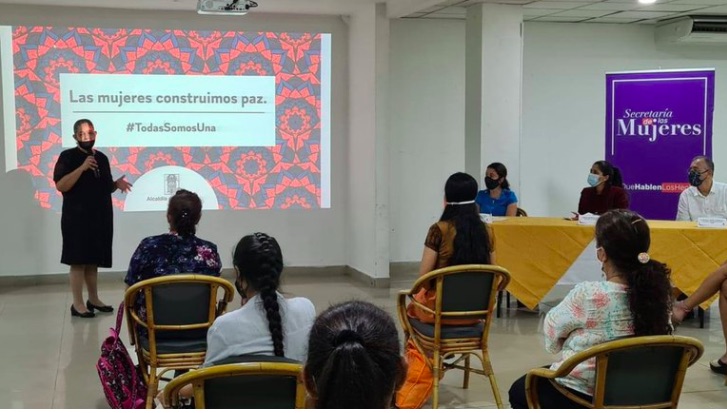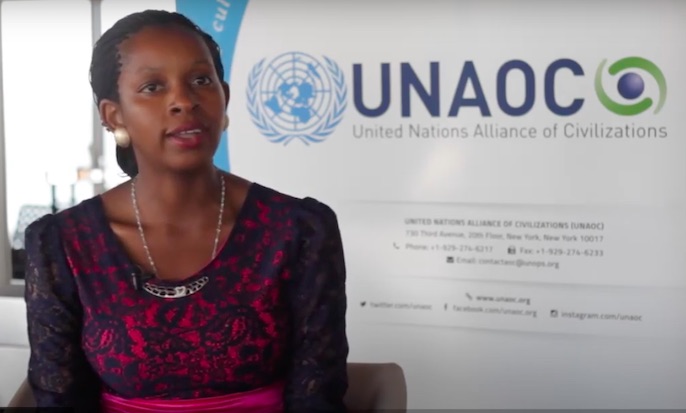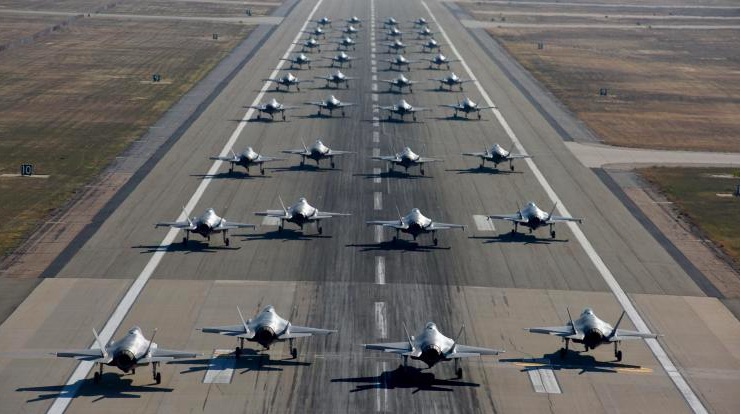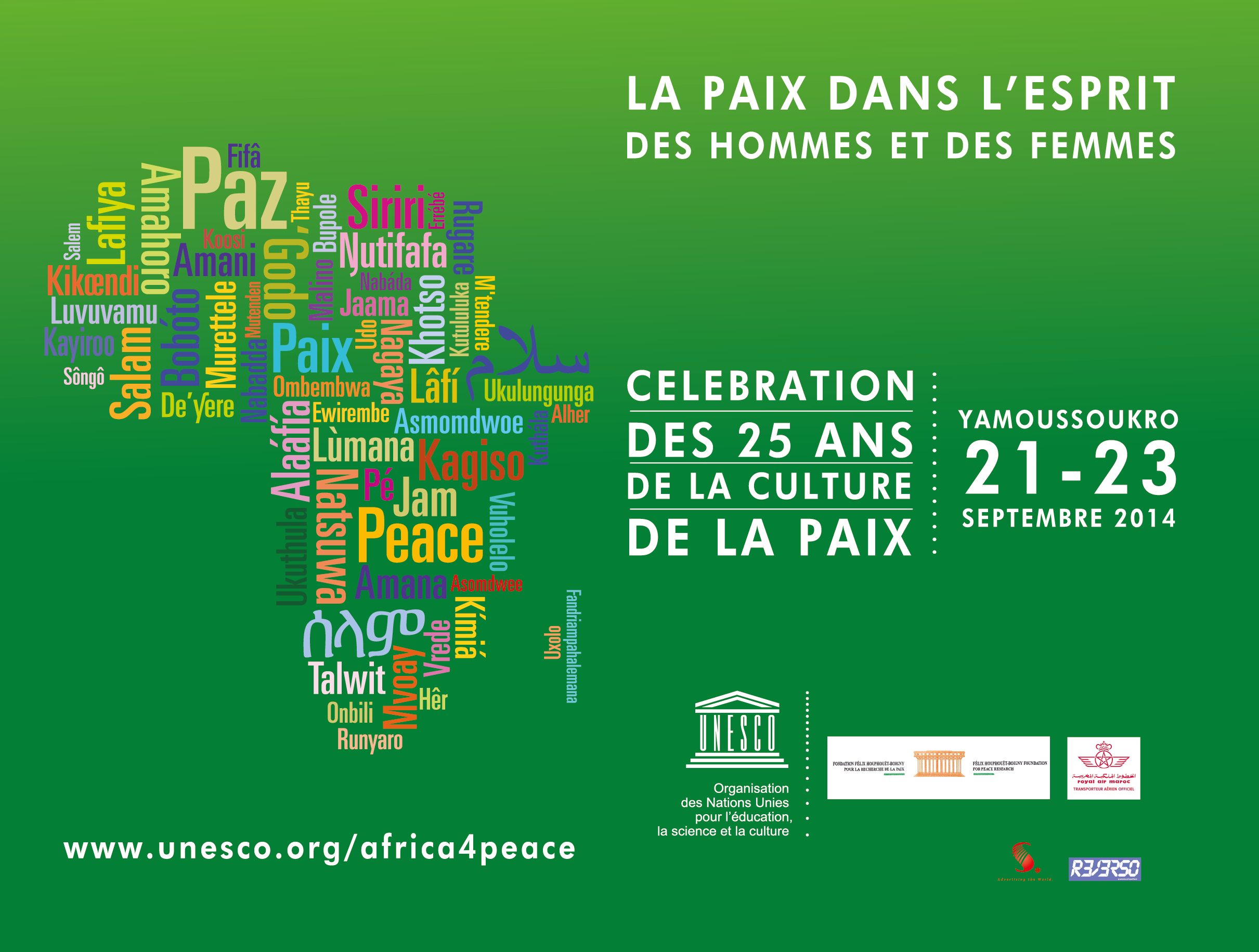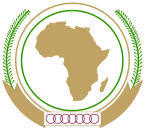-
Welcome to the
Network of Foundations and Research Institutions for the Promotion of a Culture of Peace in Africa
-
The Network's Meetings
News
CPNN (Culture of Peace News Network) bulletin of March 1, 2021
African Union and Culture of Peace
The African Union (AU) increasingly promotes a culture of peace on the continent.
As described in a new book by Kathryn Nash, the African Union has developed, since its beginning at the turn of the century, a conflict management policy that was not available to its predecessor, the Organization of African Unity. Currently, the AU deploys monitors, authorizes peace support operations, and actively engages to resolve internal conflicts.
The 34th Session of the African Union Summit ended on 7 February 2021 with the new Chair, President Felix Tshisekedi of the Democratic Republic of the Congo (DRC), outlining an ambitious agenda, including combating climate change, expediting regional integration, investing in human capital, promoting Africa’s culture, empowering women and youth, and accelerating the operationalization of the African Continental Free Trade Area (AfCFTA).
One of the priorites mentioned by President Tshisekedi is the "Silencing the Guns" campaign, which has been extended to 2030, and now consists of a roadmap and practical steps to achieve its objectives. There will be a two-year periodic review of implementation.
As part of Youth Silencing the Guns Campaign, the Office of the Youth Envoy (OYE) in collaboration with partners has recently provided grants to four youth projects:
- Silencing the Climate Crisis Award to project Ibn El Bitar (Algeria)
- Silencing Gender-Based Violence Award to #ShutItAllDown movement (Namibia)
- Silencing Corruption Award to Citizens Gavel Foundation for Social Justice (Nigeria)
- Silencing Youth Unemployment Award to Garden of Hope Foundation (Kenya)
Another recent initiative of the AU Office of the Youth Envoy has been the virtual meetings of women activists in the five regions of Africa, which resulted in a Africa Young Women’s Manifesto. The Manifesto is a comprehensive document addressing all aspects of the culture of peace.
The African Continental Free Trade Area (AfCFTA), mentioned as a priority for the AU, began operation on January 1, 2021. This may become an important contribution to the culture of peace on the continent as it may transform conflicts across the continent by reducing the incentives for participating in conflicts, via the creation of jobs. AfCFTA has the potential to promote women’s equality in Africa as stated in remarks to the AU Summit by outgoing President Cyril Ramaphosa. He stated that state parties would report annually on progress made in strengthening women’s participation in continental trade matters. "This includes tailor made financial products for women with reliable means to save, access, transfer and borrow money." He called for a "women-led Peace Forum to be attended by Heads of State and Government and to implement decisions of the Peace and Security Council to institutionalise the office of the special envoy on women, peace and security."
In his remarks to the AU summit, incoming President Felix Tshisekedi also confirmed the AU participation in the 2nd Biennale of Luanda on the Culture of Peace to be held in Angola in September, 2021 (see the many articles on this in CPNN). The strategic objective of the Biennale is to promote a peaceful and prosperous Africa through the defense and encouragement of actions that prevent conflicts in the management of national and cross-border natural resources on the African continent, as well as to educate a generation of young Africans as agents of peace, stability and development. The theme of the event this year will be: "Art, Culture and Heritage: Levers to build the Africa we want".
In her analysis of the African Union, Kathryn Nash Nash argues that the devlopment of its conflict management policy largely happened within the African context, and international pressure was not a determinant factor in its evolution. If the AU continues its independent development, it has a chance to escape from the culture of war that was imposed by the old colonial powers and that is maintained by the economic exploitation of Africa by the empires of Europe, United States and China. The development of the new continental free trade zone can help protect this independence and enable an Africa in peace.
| DISARMAMENT & SECURITY
Book review: African peace: Regional norms from the Organization of African Unity to the African Union |
FREE FLOW OF INFORMATION
Central Africa: Ambassador Sita José Analyzes Luanda Biennial With ECCAS Commissioner |
SUSTAINABLE DEVELOPMENT
New UNEP synthesis provides blueprint to urgently solve planetary emergencies and secure humanity’s future |
DEMOCRATIC PARTICIPATION
Colombia: Cultural spaces for the construction of peace |
| HUMAN RIGHTS
New ICC ruling ‘opens the door’ for justice in occupied Palestine – Independent UN expert |
WOMEN’S EQUALITY
‘Women and girls belong in science’ declares UN chief |
TOLERANCE & SOLIDARITY
|
EDUCATION FOR PEACE
Brazil: Culture of Peace in schools will be the subject of a webinar on February 18th |
CPNN (Culture of Peace News Network) bulletin of February 1, 2021
Treaty on Prohibition of Nuclear Weapons
The Red Cross: "For more than 75 years, almost half of the ICRC’s 158 years of existence, we have been advocating for the elimination of nuclear weapons for one simple reason: We do not believe they can be used without inflicting significant death and suffering among civilians. That is why January 22, 2021, is such a momentous day for us. It is the day the Treaty on the Prohibition of Nuclear Weapons (TPNW) comes into force. This day is nothing short of a victory for humanity."
This month, many others joined with the Red Cross in celebrating the Treaty.
UN Secretary-General António Guterres commended the States that have ratified the Treaty and welcomed the "instrumental role of civil society in advancing the TPNW’s negotiation and entry into force. Nuclear weapons pose growing dangers and the world needs urgent action to ensure their elimination and prevent the catastrophic human and environmental consequences any use would cause. The elimination of nuclear weapons remains the highest disarmament priority of the United Nations."
The Foreign Minister of the Vatican, speaking on behalf of the Pope, welcomed the Treaty as a step toward a "nuclear weapons-free world", saying that nuclear deterrence gives a "false sense of security".
Members of the World Future Council and Right Livelihood Laureates issued a joint statement celebrating the Entry-into-force of the Treaty and listing further steps that are needed towards the goal of the complete elimination of nuclear weapons.
On January 13, the organization Ploughshares Calgary (Canada) held a webinar explaining the treaty featuring Earl Turcotte, the Chairperson of the Canadian Network to Abolish Nuclear Weapons.
On January 21, a Global Health Webinar was held by health professionals to mark the Treaty, co-sponsored by the International Council of Nurses, International Committee of the Red Cross, International Federation of Medical Students’ Association, International Physicians for the Prevention of Nuclear War, World Federation of Public Health Association, and World Medical Association.
On January 22, the International Peace Bureau held a celebration for the Treaty, calling on members of the IPB family, our friends and all peace lovers to celebrate this historical step, and deliver this great news with noise and fun in your countries all across the globe, as the road to a world free of nuclear weapons is now wide open!
On January 25, a webinar was held with discussion by experts and activists on the political openings for global nuclear disarmament and the vital roles being played by the United Nations and civil society. It was sponsored by the Basel Peace Office, Parliamentarians for Nuclear Non-proliferation and Disarmament, Right Livelihood Foundation, UNFOLD ZERO, World Future Council and Youth Fusion.
In France, demonstrators gathered near the French National Assembly and in front of the embassies of the 4 other nuclear-weapon States and permanent members of the United Nations Security Council (Russia, USA, Great Britain, China) to celebrate the Treaty and demand their adherence.
As the Red Cross concludes, "But it is only the beginning of the world’s journey to eliminate nuclear weapons. The end comes when those 13,000 nuclear weapons no longer exist."
Many of the organizations above make demands of the nuclear states to begin the process of nuclear disarmament. And people are invited to sign appeals to these governments such as the Appeal for a Nuclear-Weapon-Free World.
But there is no indication that the nuclear powers are listening., We must do more than that, as argued in the blog, APPEALS ARE NOT ENOUGH.
| DISARMAMENT & SECURITY
Red Cross: Nuclear Weapons Are Finally Outlawed, Next Step Is Disarmament |
FREE FLOW OF INFORMATION
World Social Forum 2021 |
SUSTAINABLE DEVELOPMENT
Irate farmers storm Delhi on tractors as tear gas deployed and internet cut off in scramble to defend Indian capital |
DEMOCRATIC PARTICIPATION
Who to Believe about Venezuela’s Election: Firsthand observation or PBS Newshour? |
| HUMAN RIGHTS
Israel to ban human rights groups from school visits |
WOMEN’S EQUALITY
In Malawi, Chief Theresa Kachindamoto Fights against Child Marriage |
TOLERANCE & SOLIDARITY | EDUCATION FOR PEACE
Spain: Movimiento por la Paz produces educational material for secondary schools on the culture of peace |
CPNN (Culture of Peace News Network) bulletin of January 1, 2021
Culture of Peace in Mexico
Six years ago we carried in CPNN an article about Mexico by the great peace researcher Johan Galtung. He said, among other things, "At the national level an overarching program to prevent violence has been designed and enacted . . . grounded in a legitimate peace philosophy –one in which peace is constructed through the satisfaction of basic human needs- and is well equipped in scope and with enough budget and personnel to achieve transcending results by construction of peace infrastructures (i.e. mediation centers, academic degrees in peace for civil servants, etc.) and the buildup of a mediation-dialogue-conciliation culture. . . "
Recent articles in CPNN show that the peace programs described by Galtung are continuing to develop.
Many initiatives are underway in the educational systems of Mexico.
At a national level, the Ministry of Education is training teachers, students and parents in violence prevention and school mediation. Recently the Council for School Coexistence (Convive) convened a virtual seminar with teachers to discuss Gender Equality, Human Rights, School Coexistence and Peaceful Conflict Management
In Baja California, more than 1,500 preschool, primary and secondary school teachers participated via zoom in the seminar called: "Socio-emotional education, child and adolescent participation and the culture of peace in Mexican schools", convened by the Ministry of Public Education,
In San Luis Potosi, Training workshops and conferences for the elimination of violence against women., both face-to-face and digital, were carried out for 16 consecutive days for all personnel in the educational system.
At the Maguen David Hebrew School in Mexico City, high school students took part in a workshop on the natural relationship between the concept of Peace and Education and the importance of their own commitment to take actions in order to build peace. They collaborated in small groups to analyze thoughts and phrases of Martin Buber, Hanna Arendt, Paulo Freire and María Montessori.
At the level of higher education, the Benito Juárez Autonomous University of Oaxaca and the Honorable Congress of the State, have ratified a framework collaboration agreement to strengthen the Culture of Peace. And the University Family Development Center of the University of Colima, through the University Program for Culture for Peace, held the virtual forum "University Students Fostering a Culture of Peace".
Other recent initiatives in Mexico include a General Directorate of Culture of Peace and Human Rights, an international congress on culture of peace by women, a festival of culture of peace, activation of networks of women peace builders, an initiative called "100 actions for peace" and the use of the principles of the culture of peace to prevent violence and care for its victims.
The Government of Veracruz has established the General Directorate of Culture of Peace and Human Rights in order to contribute to institutional strengthening through the design, implementation, conduct, strengthening and consolidation of public policies on culture and education for peace.
In Sinaloa, the III International Congress "Culture of peace by women: various worldviews; women and men for positive masculinities" involved prominent specialists in these issues.
A fifth edition of its Culture of Peace festival was announced to take place on December 20 in Valle Dorado, to support neighborhood youth, "as it is one of the neighborhoods with a high rate of violence" in Mexico City. Culture of Peace workshop were planned, focused on children, and the festival was to conclude with a concert of the Imperio de la Cumbia musical group.
217 members of the Networks of Women Peace Builders took part in a meeting convened by the Secretariat for Security and Citizen Protection in order to inform them about the progress in the fight against discrimination and gender violence.
The project "100 actions for peace" has been initiatied on a national level by the National Council of Civil Organizations for the Culture of Peace, in coordination with the International Committee of the Banner of Peace and the Center for Studies for Peace, Security and Development. The campaign aims for individuals to promise to carry out for each of 100 days, a conscious action that promotes the construction of Peace, with your partner, your family, or in favor of your community and country.
The principles of a culture of peace are being used to assist victims of violence and prevent its recurrence in Mexico. To help communities of people who live on the streets and who consume psychoactive substances, students and researchers from the National School of Anthropology and History and the Metropolitan Autonomous University have formed the "Colectivo Psicocalle." The mental health of journalists, human rights defenders and / or their relatives who have been victims of violence is being addressed by the Mechanism for the Protection of Human Rights Defenders and Journalists in Mexico City. And in the context of the National Strategy for the Prevention of Addictions, the National Commission against Addictions and the Chair for Peace at the Guerrero Autonomous University have held more than ten workshops and free online conferences.
The culture of peace, as a way to counteract violence and addictions, confirms Galtung’s analysis quoted at the beginning. As he himself explained: "massive structural violence can only be addressed with massive peace policies."
| EDUCATION FOR PEACE
Mexico: Virtual seminar on peace building in schools |
FREE FLOW OF INFORMATION
Mexico: 100 Actions for Peace; Wilfrido Lázaro |
SUSTAINABLE DEVELOPMENT
Broken societies put people and planet on collision course, says UNDP |
DEMOCRATIC PARTICIPATION
Costa Rica: Peace brings together parliamentarians from the world in our country |
| HUMAN RIGHTS
U.N. rights boss urges withdrawal of article in French draft security law |
WOMEN’S EQUALITY
Female victims and ex-combatants graduated as peace activists in Antioquia, Colombia |
TOLERANCE & SOLIDARITY
|
DISARMAMENT & SECURITY
Global arms industry: Sales by the top 25 companies up 8.5 per cent; Big players active in Global South |
CPNN (Culture of Peace News Network) bulletin of December 1, 2020
Virtual Events for Culture of Peace
There are now so many virtual events promoting the culture of peace that we have started a new service at CPNN, listing them in advance along with their registration infomation. We list those that are free and open to the general public. In this way, CPNN readers are able to participate in the live event.
This month we have listed an average of almost one event per day coming from all regions of the world. Here is a brief summary, organized by theme.
The Network Meetings
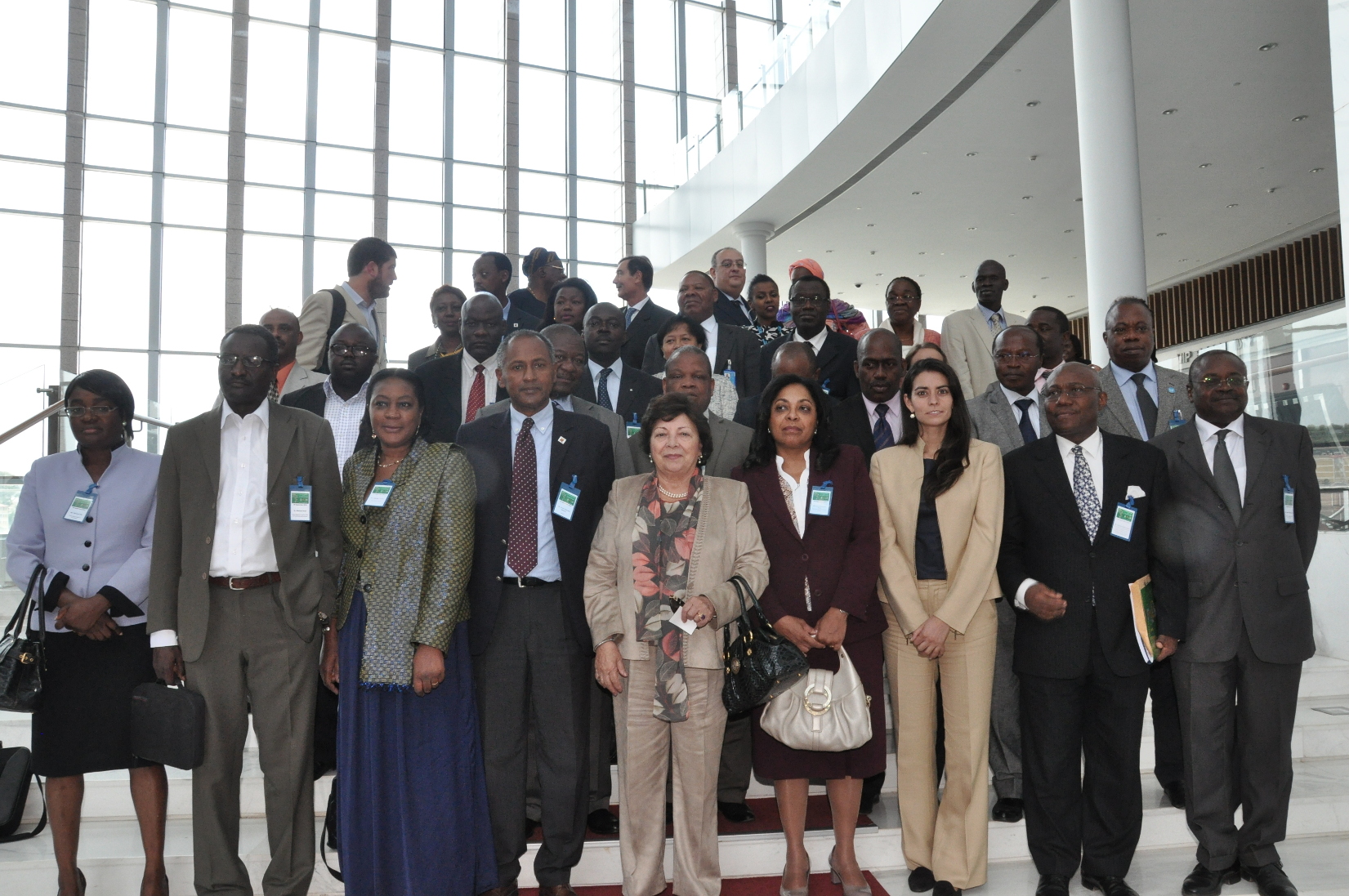
Links
FESA-UNESCO International Conference, December 12-13, 2016, Luena, Angola
Third Meeting of the Network September 11-12, 2015 in Soyo, Angola
Second Meeting of the Network, from September 21 to 24, 2014 in Yamoussoukro, Côte d'Ivoire
Network Creation Meeting on September 20, 2013 in Addis Ababa, Ethiopia
Text Resources
- Call for Papers HARIS 2 JUNE 2021
- Report of the 5th Meeting of Members of the Network held on 21 September 2019 in Angola on the sidelines of the Luanda 2019 Biennale for the Culture of Peace
- Activity Report 2019
- Program of the Luanda Biennale
- DRC the six-day war in Kisangani
- Insecurity in the Masisi in Eastern DR Congo
- General Report of the Houphouet Boigny Foundation International Conference, October 20, 2018
- RAPPORT FINAL DE LA CONFERENCE FESA-UNESCO SUR LE THEME "PREVENTION DES VIOLENCES ET PROMOTION DE LA CULTURE DE LA PAIX EN PERIODE ELECTORALE EN AFRIQUE" LES 12 ET 13 DECEMBRE 2016 A LUENA EN ANGOLA
- BULLETIN DE L’UNION AFRICAINE (UA) ET DE LA CORNE DE L’AFRIQUE (HOA) du 1er juin au 31 Août 2017
- LES STATUTS DU RÉSEAU
- RAPPORT D'ACTIVITÉS 2014 - 2015 DU RÉSEAU
- RAPPORT D'ACTIVITÉS 2015 - 2016 DU RÉSEAU
Welcoming Remarks
You are welcome to visit the website of the Network of Foundations and Research Institutions for the Promotion of a Culture of Peace in Africa.
The Network was created at the end of the Addis Ababa meeting on September 20 and 21, 2013 with a view to "creating a continental and sustainable peace movement capable of mobilizing African States, the private sector, African artists and leaders, international organizations and regional development actors as well as NGOs and grassroots associations". It is currently composed of 44 African and non-African organizations listed here.
You will find on our website articles, publications, photos and videos concerning the promotion of the Culture of Peace on the African continent. We also keep you informed about upcoming events.
